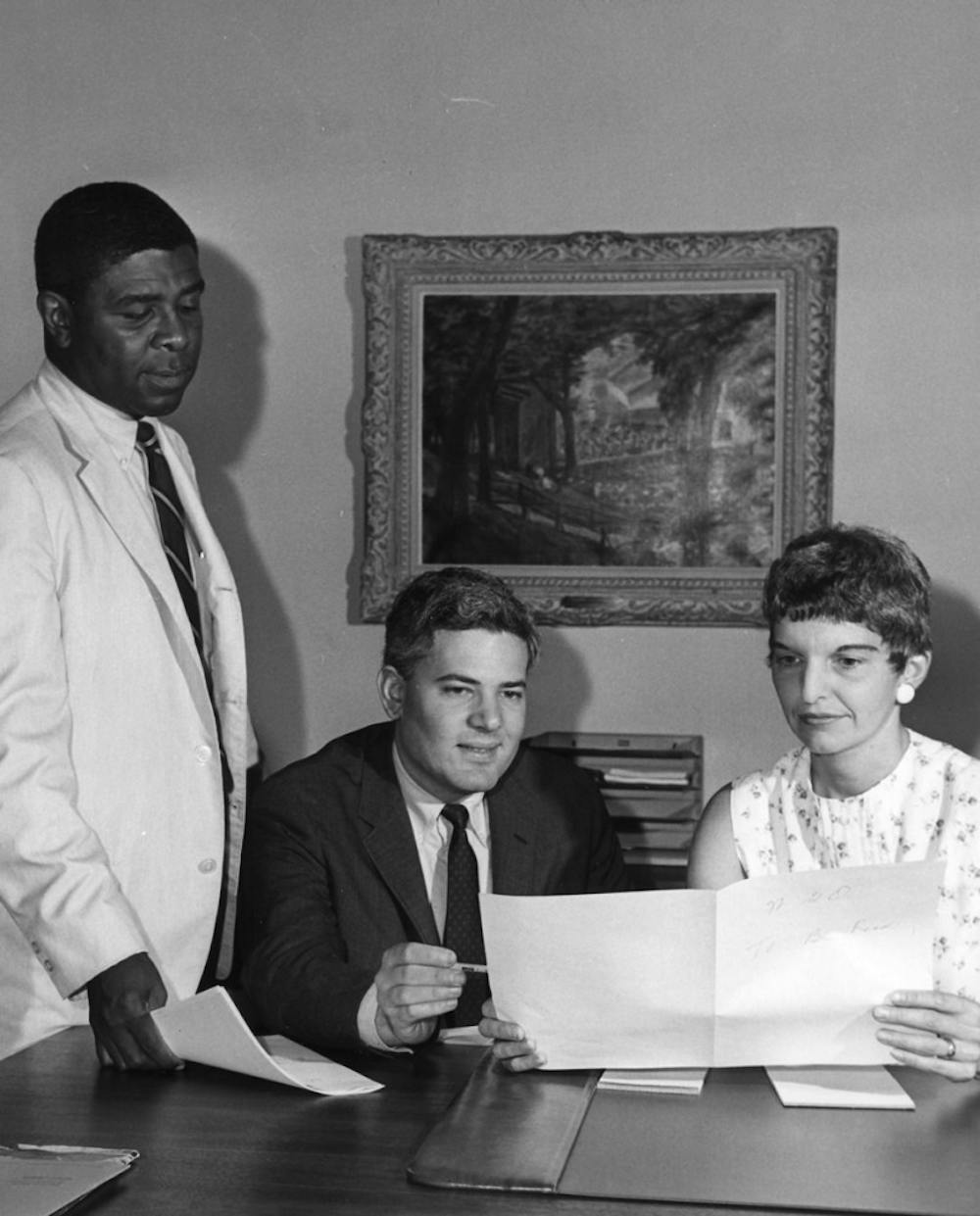
With the Nov. 1 early decision deadline fast approaching, some prospective Penn students are assembling applications to send to their parent’s or grandparent’s alma mater.
An average of 38 to 42 percent of Penn legacy applicants have been accepted to the University under early decision over the past five years.
Penn “desires to build lifelong relationships with alumni,” according to Vice President for Development and Alumni Relations John Zeller, and one meaningful way for Penn to remain close to families is to educate their children. Thus, for many years, the University has placed a premium on legacy admissions.
In 1964, Penn’s then-Dean of Admissions William Owen explained in a University City Herald article that like children of faculty, legacy applicants would be judged “from an academic standpoint solely on the one question: can he be expected to perform satisfactorily without undue difficulty?”
“If so,” Owen stated, “he has been admitted.”
Between 75 and 80 percent of the pool was approved that year, and approximately two-thirds matriculated — comprising 15 percent of the 1,600-person class.
In the 2009-2010 admissions process, out of the 27,000 undergraduate applications Penn received, 1,383 of them — about five percent — were legacies. Of the legacies, 28 percent were admitted, double Penn’s overall admit rate of 14 percent.
With a high yield rate, over 300 legacy students make up 13 percent of the current freshman class — a fairly consistent statistic in the past five years.
Dean of Admissions Eric Furda said the numbers are “what they are” and he’s not going to “hide behind them,” but he added that a few things get lost in the speculation of legacy admissions.
For example, Penn’s Alumni Council on Admissions advises children of alumni before they apply and does not hesitate to discourage them from applying.
“We help alumni make informed decisions, whether it’s right to apply to Penn or not,” Furda said. “The pool is more self-selected due to conversations we’ve had in the past.”
Also, Furda added that children of alumni are often at an advantage because their parents are educated — partially explaining their higher admissions rate.
High-school grade point averages for this group might also be lower than the average applicant’s because the students often go to competitive public and private schools, Furda explained.
These numbers are standard at peer institutions. In the Ivy League, legacies make up between 10 to 15 percent of each class, according to The Economist.
However, the method by which the Office of Admissions acknowledges legacy status is unique to Penn.
“We encourage legacies to apply early decision,” Furda said, because legacy preference is given “maximum consideration” — according to the Alumni Council on Admissions — during the November review process.
Legacy status is considered during regular decision, but statistics show that it holds much less weight. According to the ACA website, while the acceptance rate of legacy applicants during early decision is 10 percentage points higher than all applicants’, the two admit rates are the exact same in the regular decision process.
“Penn was the first school to use ED as far as I know, and it became a model for college admissions everywhere,” said Michael Chimes, college counselor at Gill St. Bernard’s School in New Jersey. “Other schools started using [early decision] because it’s a wide-ranging tool that accelerates candidates who have exclusive interest in a particular place.”
Though early decision continues to be a way for applicants to increase their odds of acceptance, the policies regarding legacy admissions have evolved since the 1960s.
The difference in treatment toward legacies and nonlegacies is typically overstated, according to Chimes. “Parents especially think that magic will unfold, and that’s just not true,” he said. “Legacy doesn’t unlock doors that are slammed shut.”
Jeffrey Durso-Finley, director of college counseling at The Lawrenceville School, noted that the legacies he’s observed get into their top-choice colleges have “absolutely” been qualified. Universities go to great lengths to deter prospective legacies from applying if they seem like bad matches, he said.
Durso-Finley added that he’s seen some universities recommend that legacies apply to other schools and then transfer after they prove they can handle post-secondary work. Harvard University has a process known as Z-listing, where students are guaranteed acceptance to Harvard after taking a year off.
When legacies who have been granted admission arrive at Penn, their academic performance tends to be in line with that of their peers.
“There’s no discrepancy that I’ve noticed at all,” Wharton junior and legacy Marc Bortz said. “I also don’t see any more or less effort being put in — it’s all pretty neutral.”
A 2007 study by Princeton University professor Douglas Massey and University of North Carolina, Chapel Hill professor Margarita Mooney concurred. They found legacies at 28 selective universities perform at the same level as their classmates.
“I’ve definitely heard about the reputation of not being able to do the work,” College senior Christina Anderson said. “But the legacies I know are fantastic students.”
The Daily Pennsylvanian is an independent, student-run newspaper. Please consider making a donation to support the coverage that shapes the University. Your generosity ensures a future of strong journalism at Penn.
DonatePlease note All comments are eligible for publication in The Daily Pennsylvanian.




